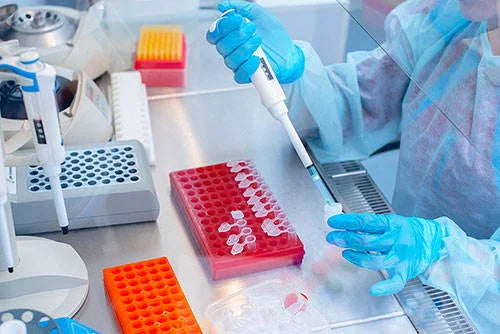
Select the option that best fits you.


We’ve known for a long time that there was a hidden world of bacteria living in our gut, helping to digest our food, keeping bad bacteria under control, and generally just taking up space. What we’re only recently beginning to discover is how diverse this enormous microbial ecosystem inside of us is, how much it can vary from person to person, and how much it impacts almost every aspect of our health. For centuries the only technology we had to examine these microbes were microscopes and it was only until the 1950’s that we could even think about identifying them by their DNA. Within the last 20 years, even more sensitive and powerful technology has been developed and it has revolutionized our knowledge of our internal physiology.
It’s called DNA sequencing and it’s been a game changer for gut health research. Now doctors and scientists can see a full picture of the microbial diversity that thrives within your gut with just a small stool sample. Something that would have been unimaginable a generation ago is now becoming just as common as having your blood pressure checked. And within the current climate of limitless data, personalized gut health has become a powerful technology tool to provide each individual with a full 360 degree view of what’s going on inside of them.
Now that the focus of personal health is moving away from a one-size-fits-all approach and doctors are learning to use the growing menu of testing that is available, how do you know what test is right for you? Let’s break them down:
Most commonly used to find out if you have a food allergy, these tests usually measure the level of the IgE antibody you have against a specific food. But aren’t always accurate and should be accompanied with an elimination diet to determine if a food allergy is present.
Most commonly used to detect SIBO, or small intestinal bacterial overgrowth, breath tests tend to look for the hydrogen and/or methane gas released by excess levels of bad bacteria in your gut. Other breath tests are used to detect Helicobacter pylori infections. However, these breath tests are not easy to get and are also far from being considered an accurate diagnostic tool.
Stool tests are quickly becoming the most widely accepted way of quickly and accurately viewing what’s going on inside your gut. The most common ones available use 16S DNA sequencing. It can give you a quick, broad overview of the bacterial makeup of your gut - a ballpark view, if you will. If you’re looking for a more comprehensive gut test, then whole genome sequencing (aka NGS or “shotgun sequencing”) like that used by Sun Genomics throughout its entire product line, is the way to go. It will not only be able to show you all of the bacteria in your gut, but it will also be able to detect parasites, yeast cells, fungi, and even viruses. Wondering if you have a Candida overgrowth in your gut? This test will be able to tell you. And while stool test using 16S sequencing would be able to show you the genus of the bacteria present (think of it as the bacteria’s last name), whole genome sequencing can detect genus, species, and even the strain of a particular microbe as well as how much is present. This becomes essential if you’re wondering if there is intestinal bacterial overgrowth (SIBO) or even just to see if you are lacking in beneficial or probiotic species.
Whether you’re just curious to see how healthy your gut microbiome is or whether you’re desperate to find a solution for a gut problem that’s been plaguing you for decades, knowing which test to take can make all the difference. And if you’re looking for the most accurate information available in order to choose a therapy that might help bring some relief to chronic issues, then knowing which technology can provide that is crucial. From microscopes to blood tests, breath tests, 16S DNA sequencing, and now whole genome sequencing, that technology is not only getting more accurate and powerful, it’s also becoming faster, cheaper, and more accessible.
We can support you on the path to better wellness by providing you with the information you need to start the conversation, and we can provide tailored support for your provider.
